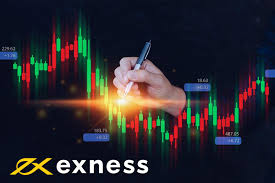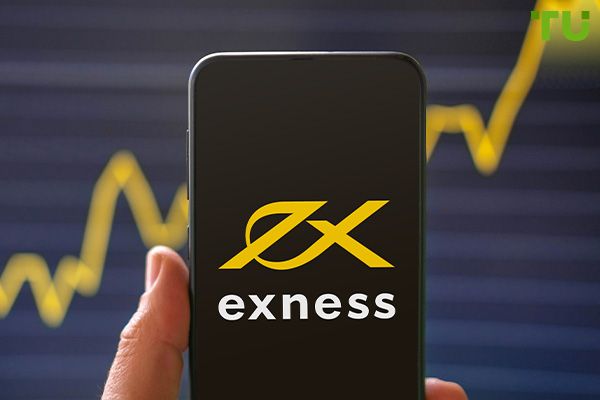
Understanding Exness Regulation: Ensuring Finance Security
The importance of regulatory measures in the financial industry cannot be overstated, especially when it comes to trading platforms like Exness. exness regulation Exness Moldova is an excellent case study of how local regulatory bodies enforce guidelines to protect investors. In this article, we will explore the various aspects of Exness regulation, examining both its implications for traders and the overarching benefits of a regulated trading environment.
What is Exness?
Exness is one of the leading online forex and cryptocurrency trading platforms, founded in 2008. Over the years, it has gained a reputation for providing traders with a user-friendly interface, competitive trading conditions, and a multitude of instruments. However, the platform’s commitment to regulatory compliance sets it apart, ensuring a secure trading environment for its clients.
Understanding the Importance of Regulation
Regulation serves as a protective framework for traders and investors in the financial markets. Regulatory authorities enforce certain standards and guidelines that brokers must adhere to, promoting transparency, accountability, and fairness. The impact of regulation becomes particularly significant in a highly volatile market like forex trading, where the potential for losses is high and trust is essential for a healthy trading environment.
Exness Regulation Overview
Exness operates under the regulatory purview of multiple financial authorities across different regions. This multi-regulatory structure allows Exness to cater to a diverse clientele while ensuring that all traders operate under stringent regulatory frameworks. Some of the key regulatory bodies that oversee Exness include:
- The Financial Conduct Authority (FCA) – United Kingdom: As one of the most respected and stringent regulatory bodies worldwide, the FCA has strict rules for capital adequacy, anti-money laundering practices, and client protection.
Exness is authorized to operate in the UK under the FCA, which enhances its credibility among traders. - Cyprus Securities and Exchange Commission (CySEC): CySEC is another regulatory authority that oversees Exness’s European operations. It ensures that the broker follows EU regulations, which offer substantial protections to traders, including investor compensation schemes.
- Financial Sector Conduct Authority (FSCA) – South Africa: This regulatory body ensures that Exness adheres to local trading laws and promotes fair trading practices within the South African market.
- Other Regional Regulators: Exness also holds licenses from various other regulatory bodies depending on the region, thereby ensuring compliance with local regulations and further reinforcing its global presence.
Benefits of Trading with a Regulated Broker

When you trade with a regulated broker like Exness, you enjoy numerous benefits:
- Client Fund Security: Regulated brokers are required to keep client funds in separate accounts, ensuring that traders’ money is protected even in the event of bankruptcy or other financial troubles.
- Compliance with Standards: Regulatory bodies impose strict standards on trading practices, including transparency in fees and clear communication of risks. This leads to a more trustworthy trading environment.
- Access to Compensation Schemes: In many jurisdictions, regulatory bodies offer compensation schemes that protect traders’ investments. If a broker fails to meet its obligations, traders can receive compensation up to a certain limit.
- Enhanced Dispute Resolution: Regulatory authorities provide mechanisms for dispute resolution, ensuring that traders have avenues to address grievances effectively.
The Regulatory Challenges in the Forex Industry
While regulation provides many benefits, the forex industry faces certain challenges as well. The rapid growth of online trading platforms has made it increasingly difficult for regulatory bodies to keep up. Some issues include:
- Global Nature of Trading: Forex trading operates 24 hours a day across different time zones, making it challenging for any single regulatory authority to monitor activity.
- Emerging Technologies: The rise of cryptocurrencies and blockchain technology presents new regulatory challenges, as existing frameworks may not be sufficient to address these innovations.
- Market Manipulation: Despite regulations, the forex market remains susceptible to manipulation, which can occur when traders or brokers engage in deceitful practices.
How to Choose a Regulated Broker
When entering the forex trading world, it’s crucial to select a regulated broker that best suits your needs. Here are a few tips to consider:
- Check Regulatory Status: Always verify the broker’s regulatory status by visiting the website of the relevant authority.
- Review Client Feedback: Engage with other traders to understand their experiences with the broker, providing insights into potential issues.
- Evaluate Trading Conditions: Look for transparent information regarding spreads, commissions, and any additional fees associated with trading.
- Support Services: Assess the quality of customer support, as prompt assistance can make a significant difference in your trading experience.
Conclusion
Trade with peace of mind by choosing a regulated broker like Exness, which offers compliance with multiple international regulations. Such measures ensure not only your security but also foster a fair and transparent trading environment. As the forex market evolves and the digital landscape grows, remaining informed about regulations and broker choices will empower traders in navigating this dynamic industry.
